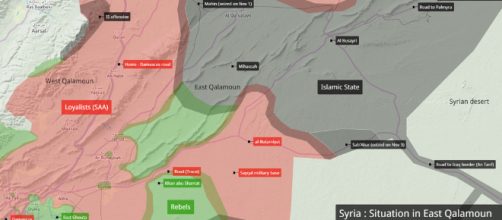With the help of the UN, Supplies have been allowed into the besieged city of Eastern Ghouta, an area of Syria that has been under siege since 2014. Included in this is a wave of aerial bombardment that began on February 18th, which killed over 700 people in the 15 days since. Human Rights Groups have vehemently denounced this siege, citing that a large portion of it has been targeting civilian populations.
Syrian dictator Bashar al-Assad claimed that many of these casualties can be blamed on Islamist groups using civilians as human shields and preventing anything from exiting the city.
It is not disputed that there are radical Islamic groups within the city. However, Assad, according to the UN and other human rights groups, has a record of various human rights violations including mass reprisals on civilian populations, torture, and a few gas attacks investigated and confirmed by the UN.
Supplies have reached Eastern Ghouta
The supplies were brought into the town of Eastern Ghouta via convoy. Included in these supplies are much-needed medical equipment, as well as food, enough for over 27,000 people. These will be especially useful, seeing as hospitals have been frequent targets of attack. Dwindling food supplies and malnutrition have also been pressing issues within the city.
However, the area has a population of 400,000, so how effective the supplies will be has yet to be seen. There is also no guarantee that attacks on medical centers will cease. The Syrian government and Russia have proposed a daily ceasefire to address humanitarian concerns. However, the ceasefire would last only five hours, and the city would still be subject to bombing for the rest of the day.
The city faces continued attacks
The Syrian army's assault on the area has made progress, with reports from various sources claiming that roughly one third of the city is now under government control. Assad and his allies cite Islamism and terrorist cells active in the resistance as justification for the continued offensive against Eastern Ghouta.
Many critics argue that the presence of Islamist militants still doesn't justify the violence of the Assad regime, nor could the militants do nearly as much damage as pro-government sources claim. Furthermore, they say that taking this stance is problematic because, not only does it justify violence committed against civilians, but it also undercuts the validity of a legitimate rebellion against a tyrannical leader.


